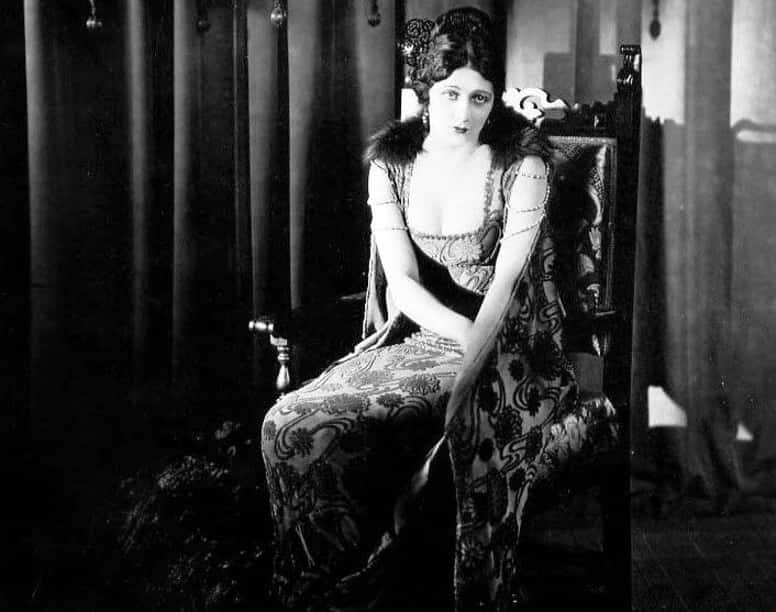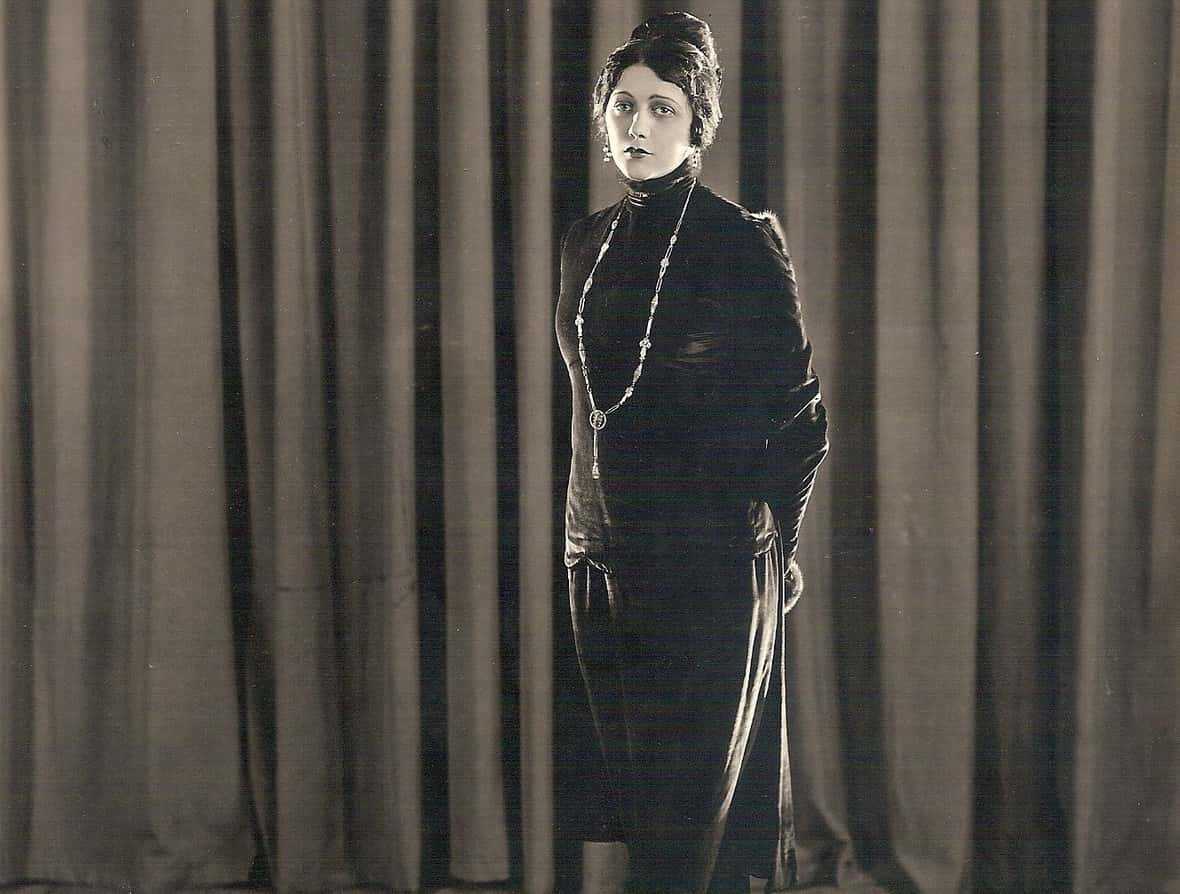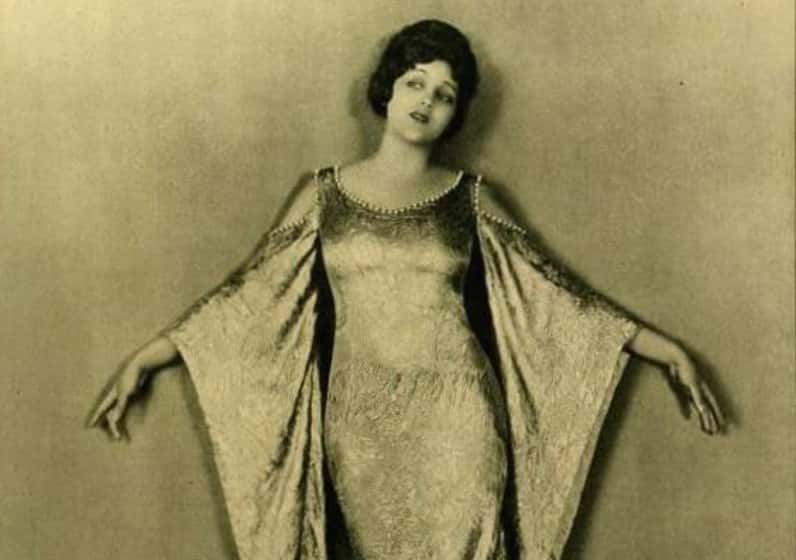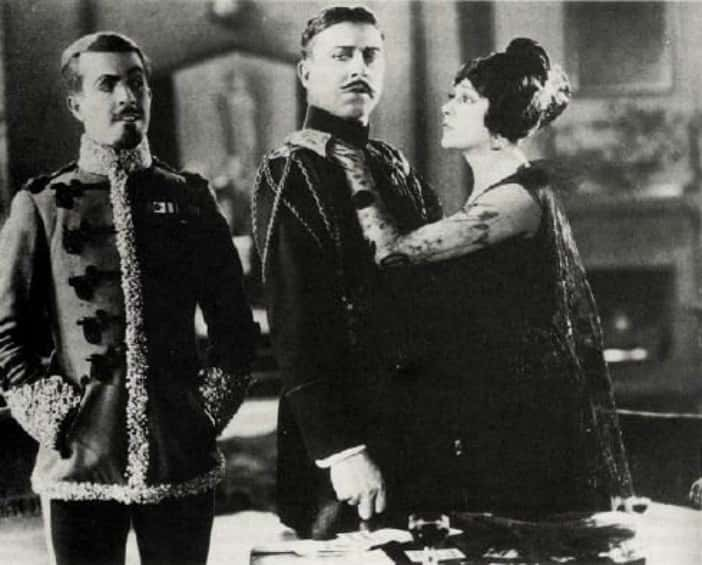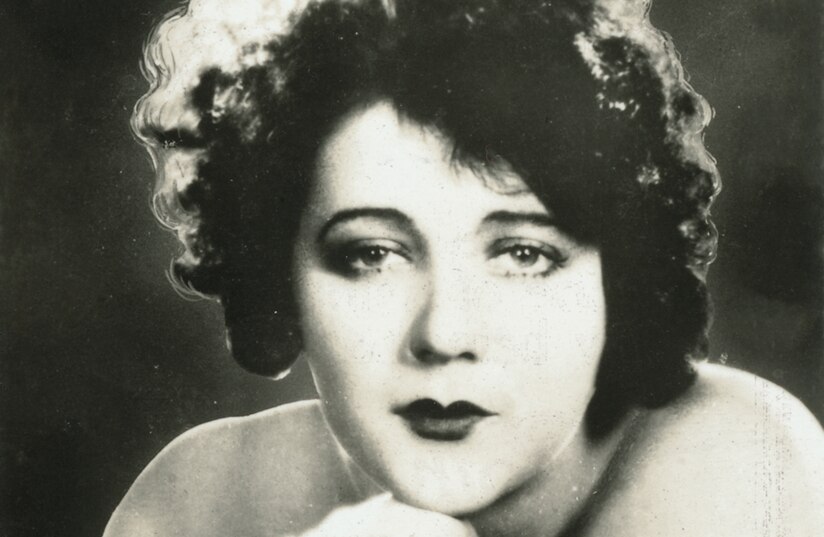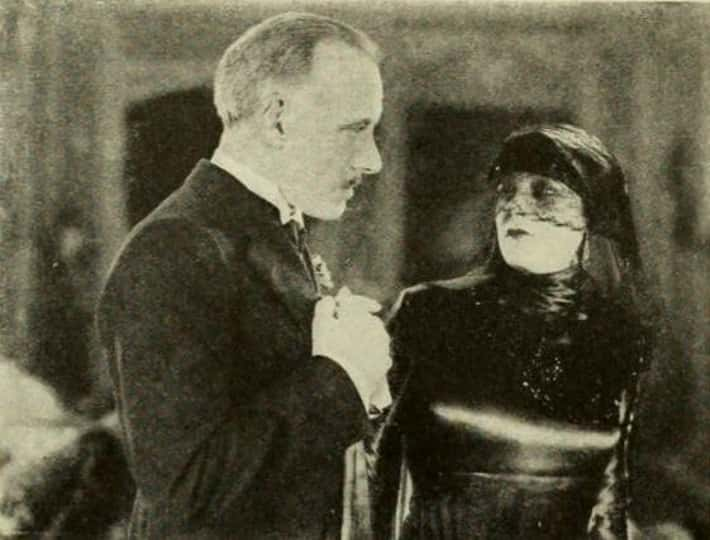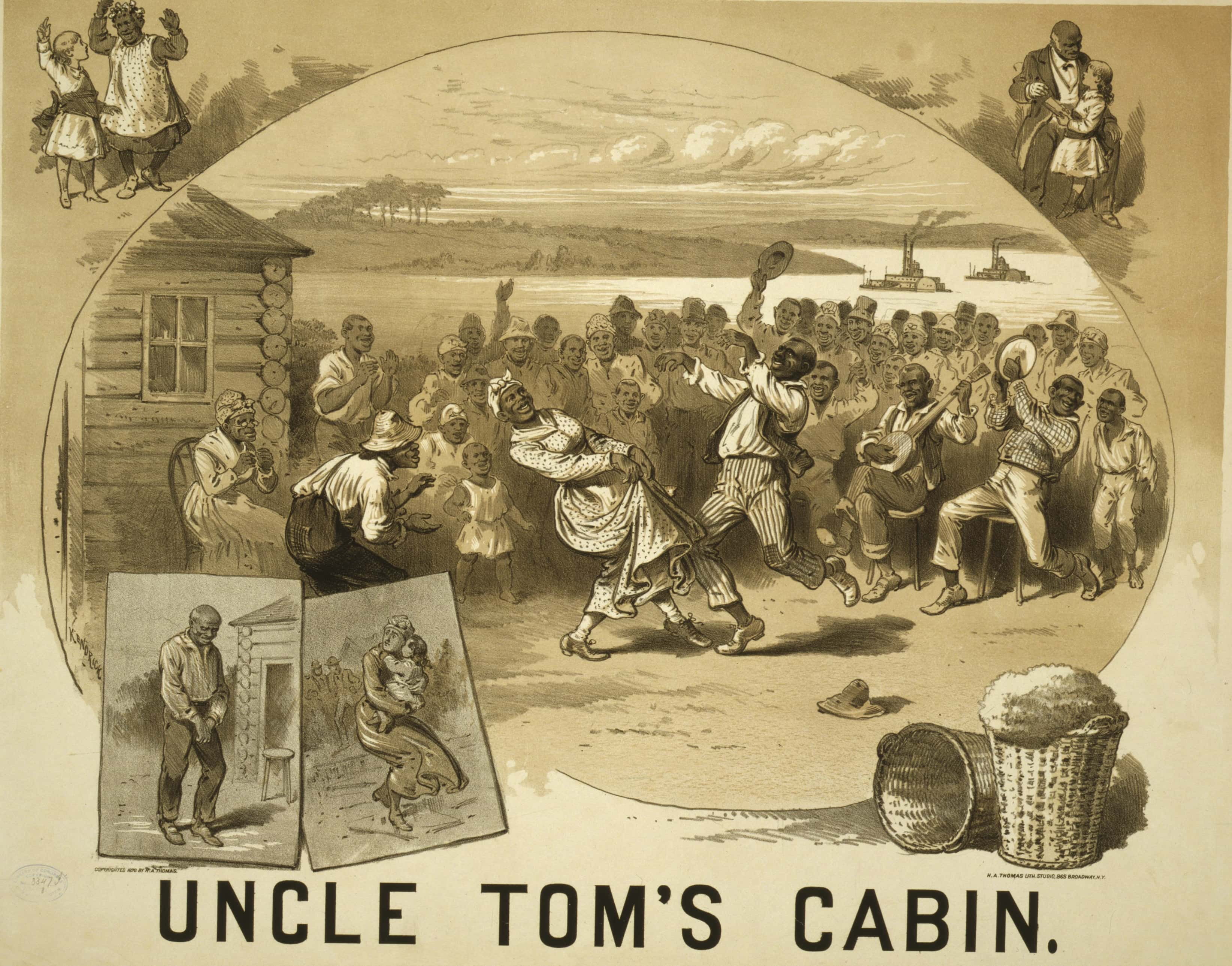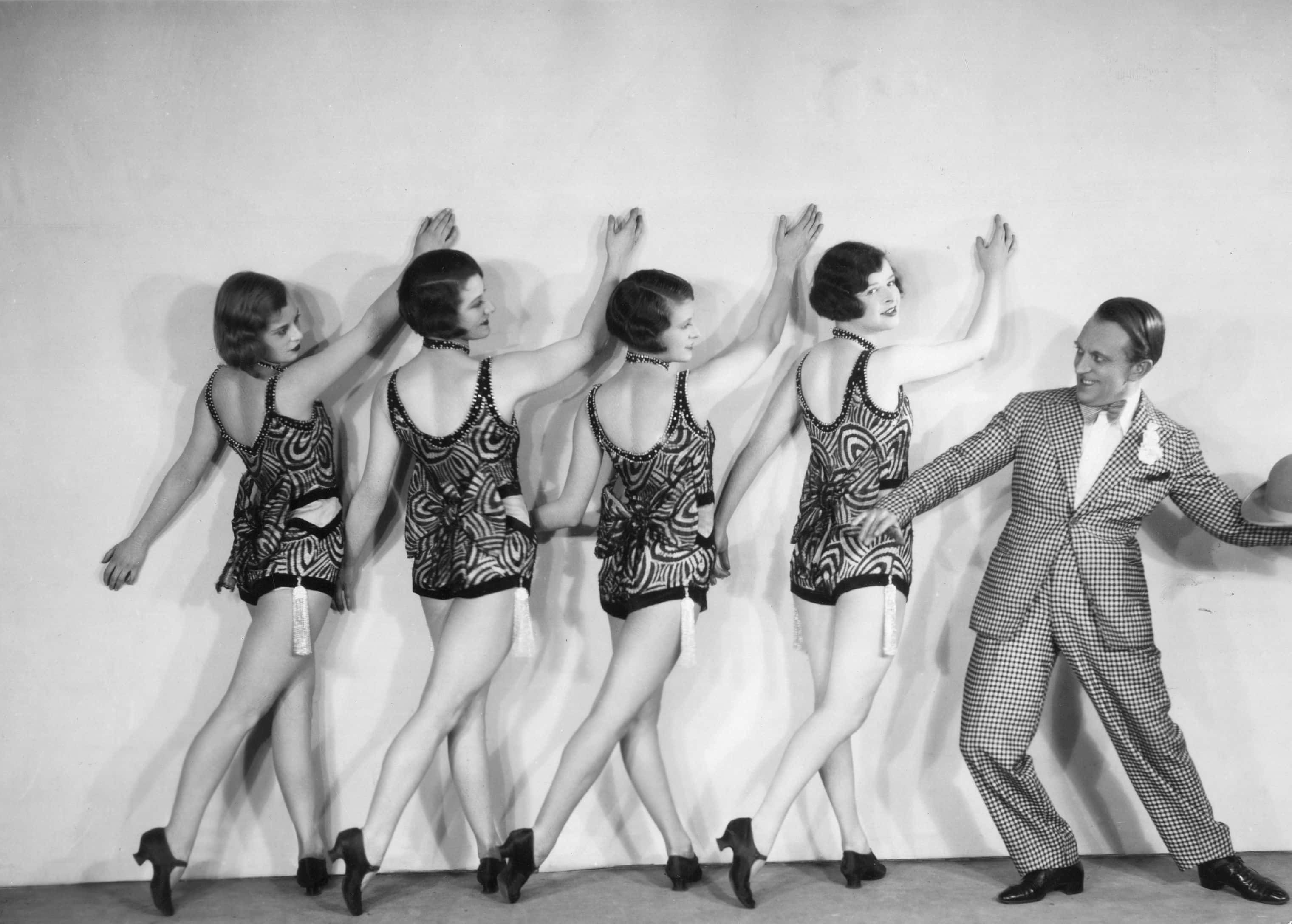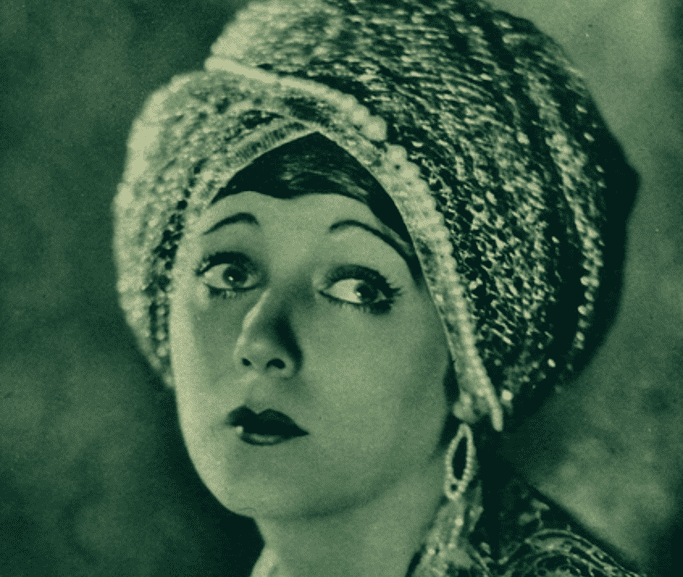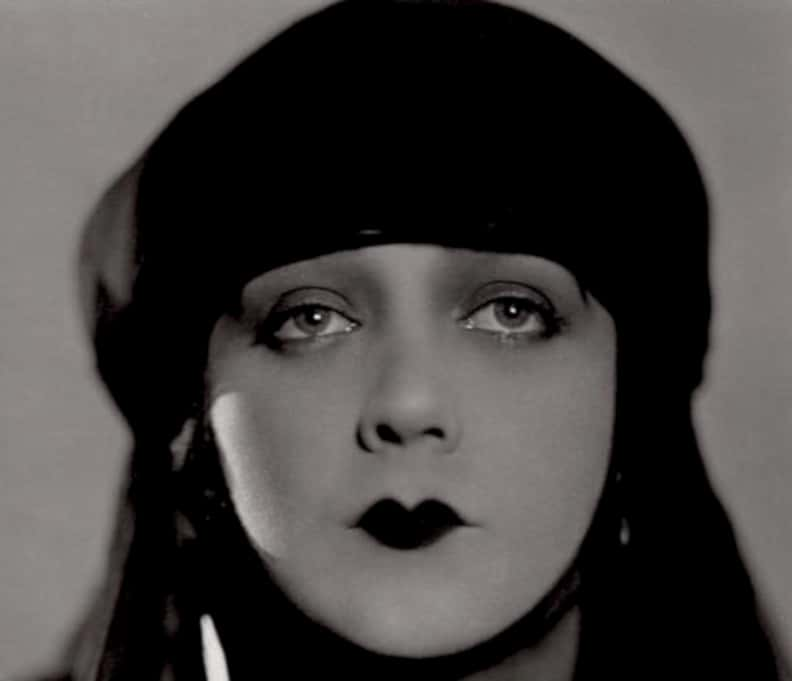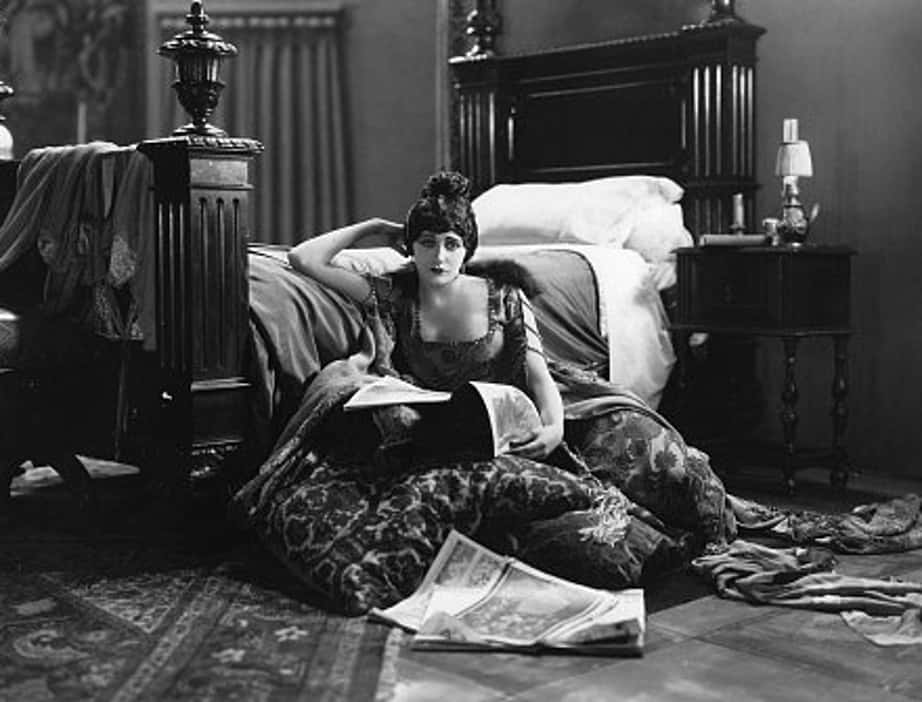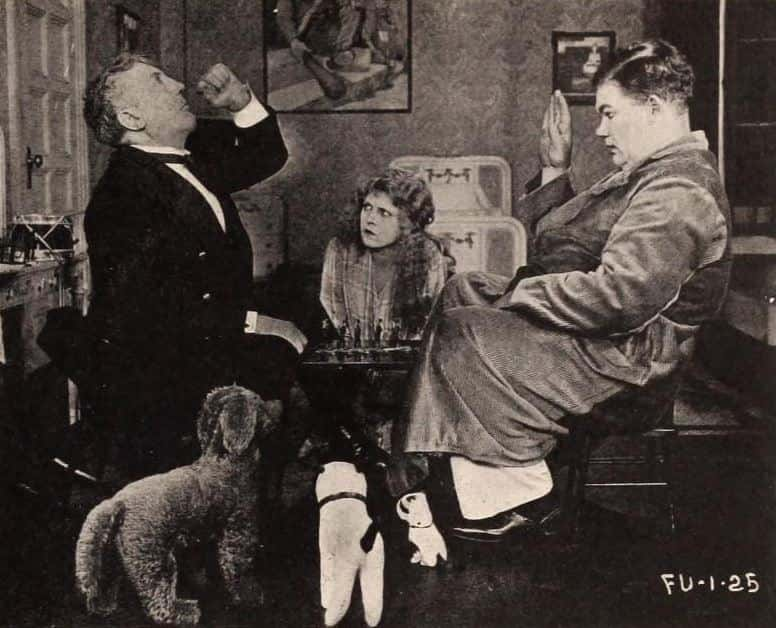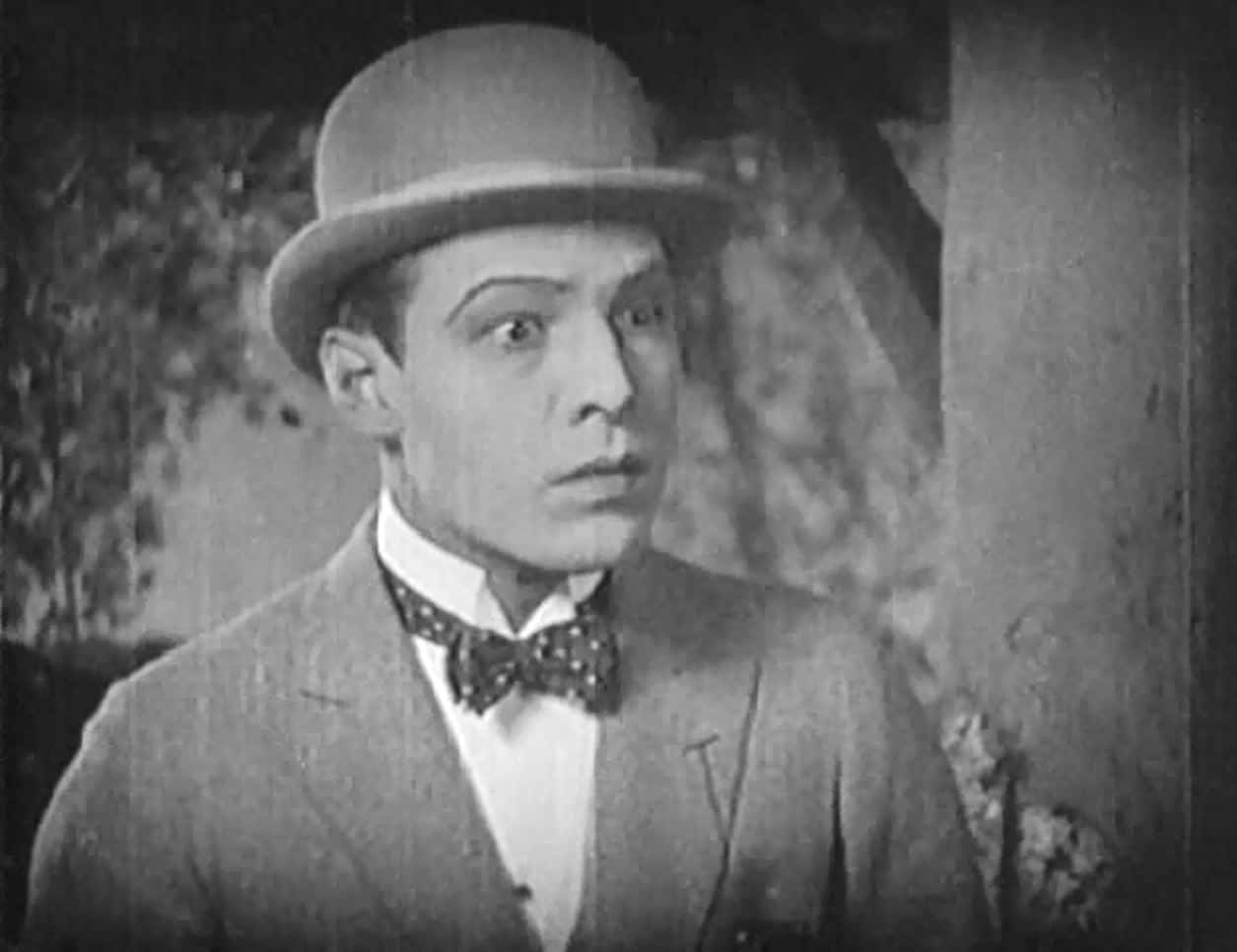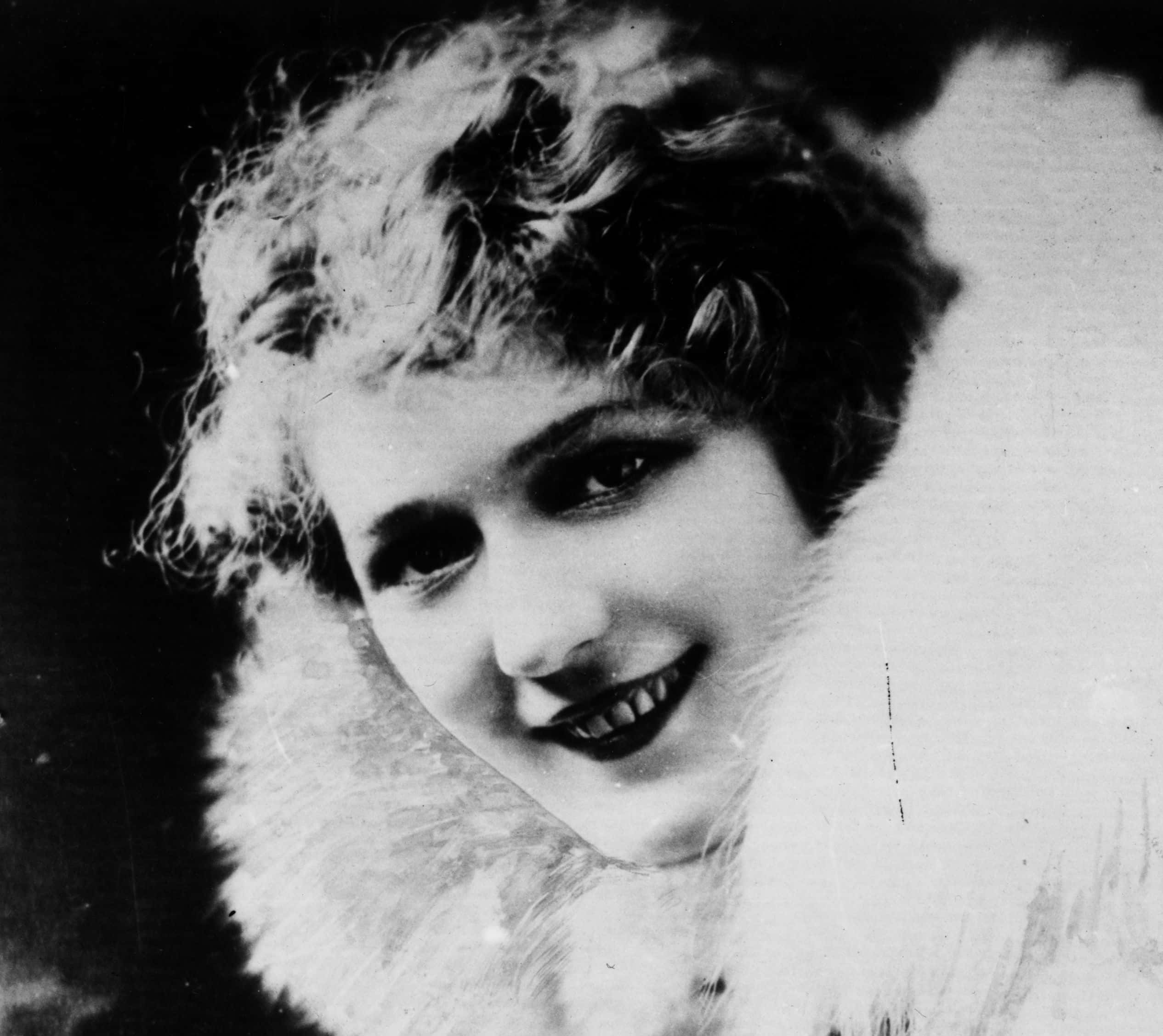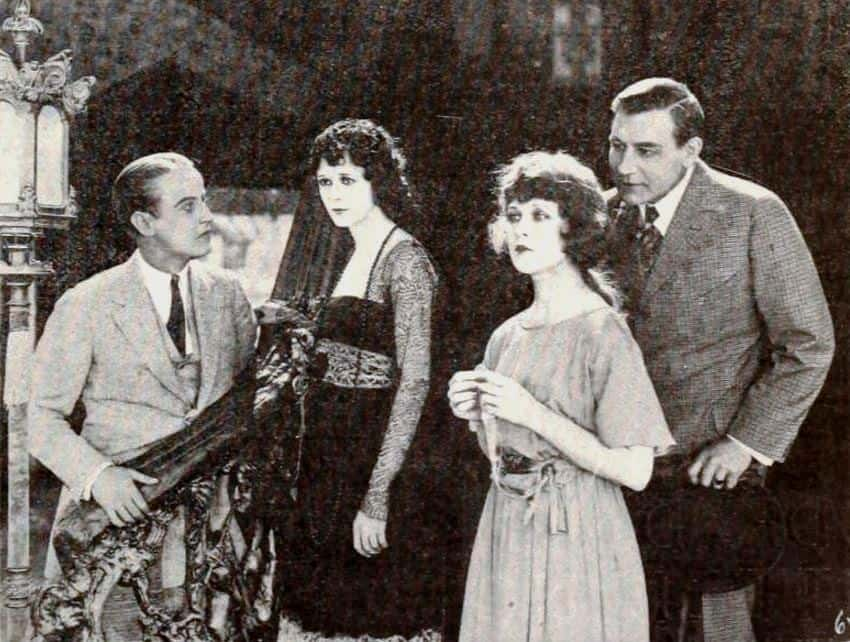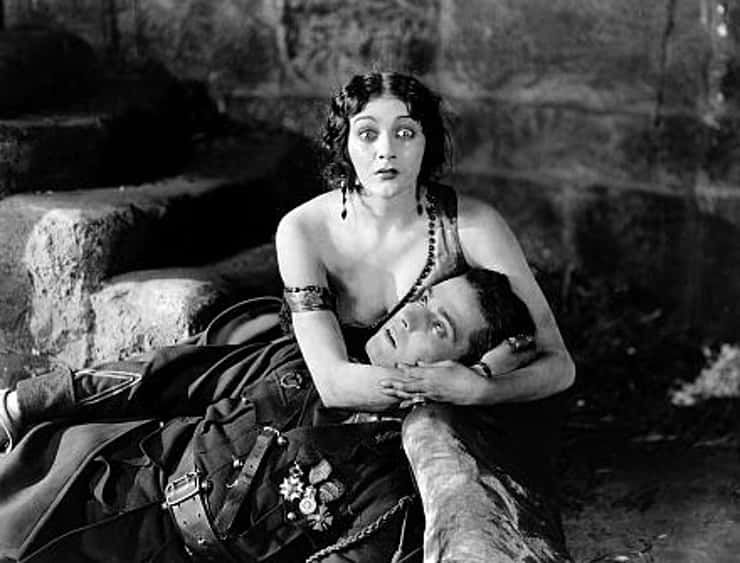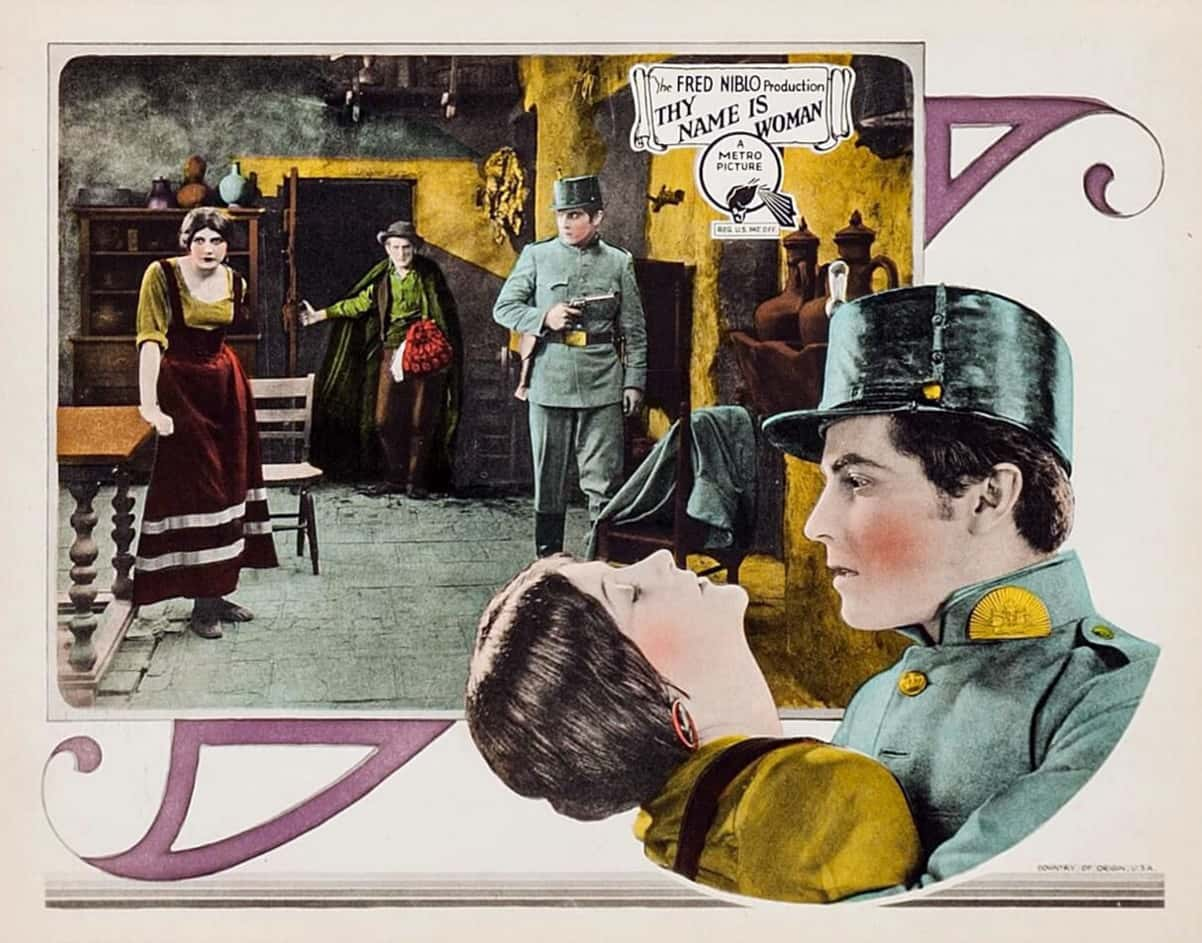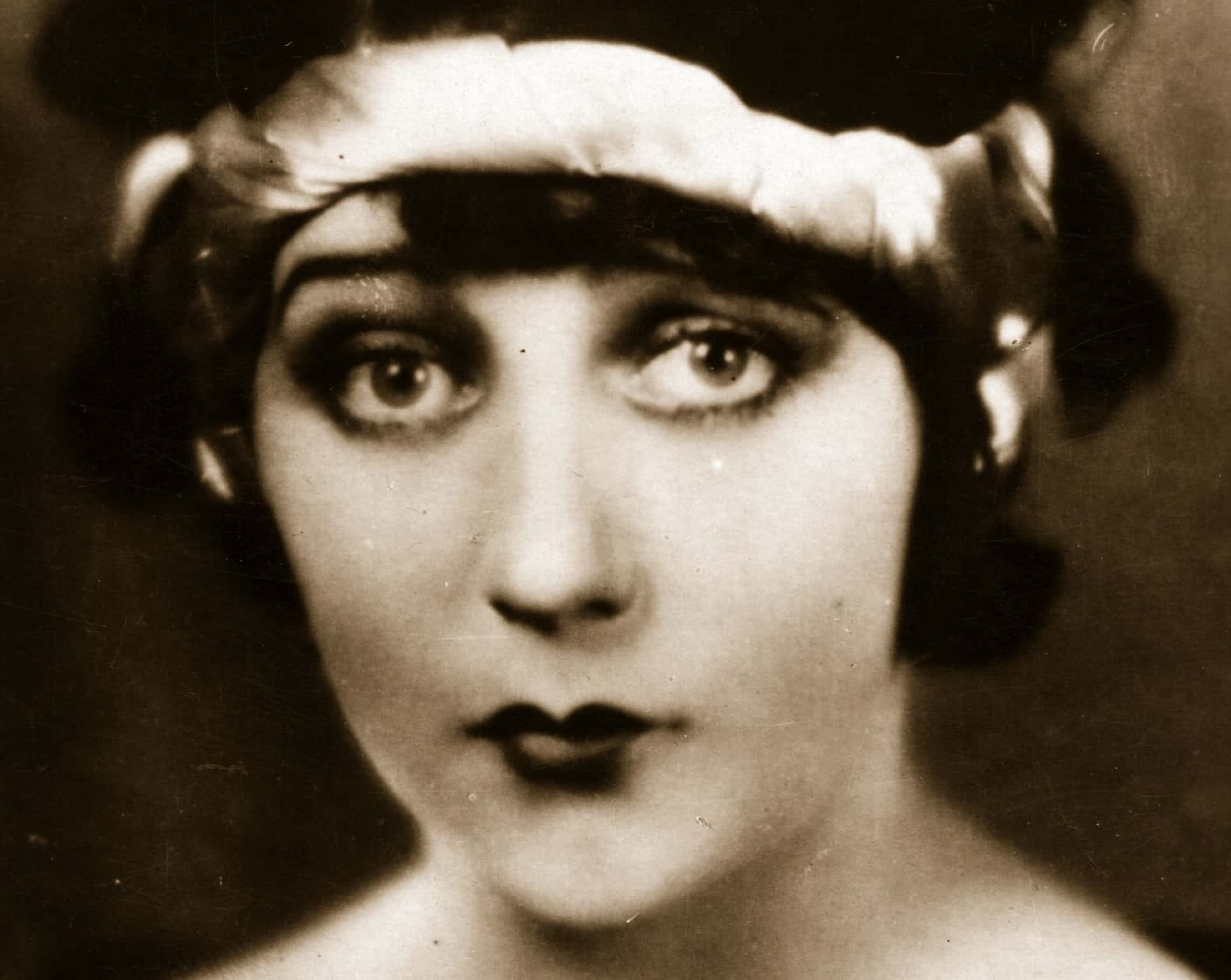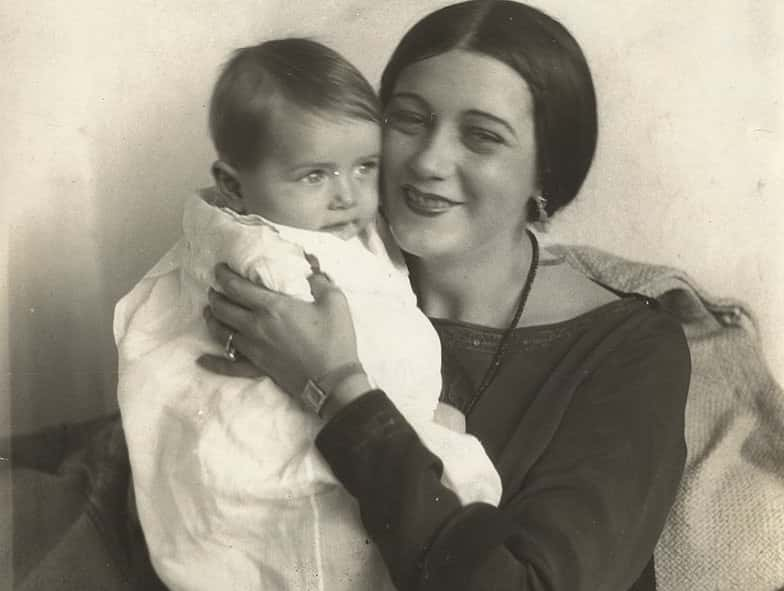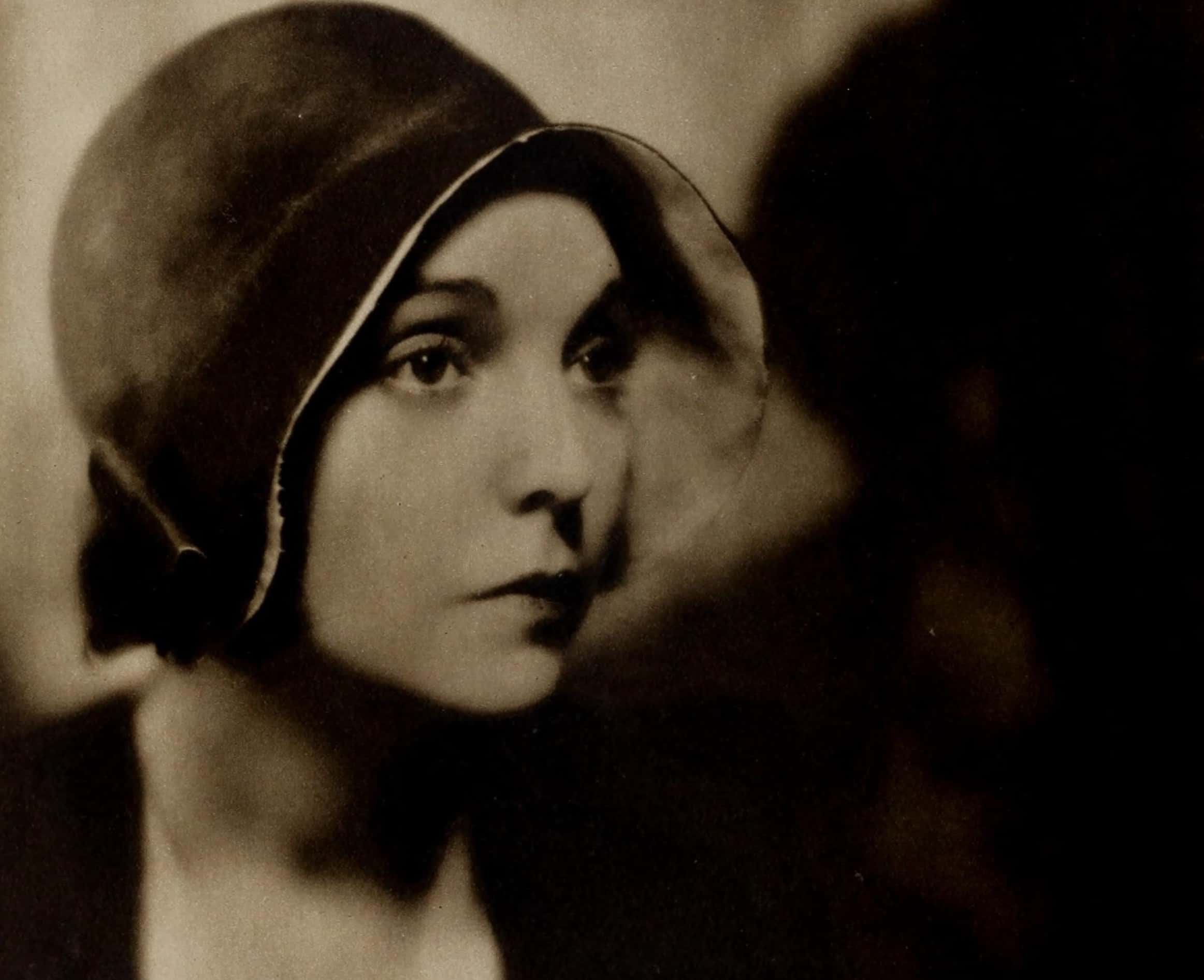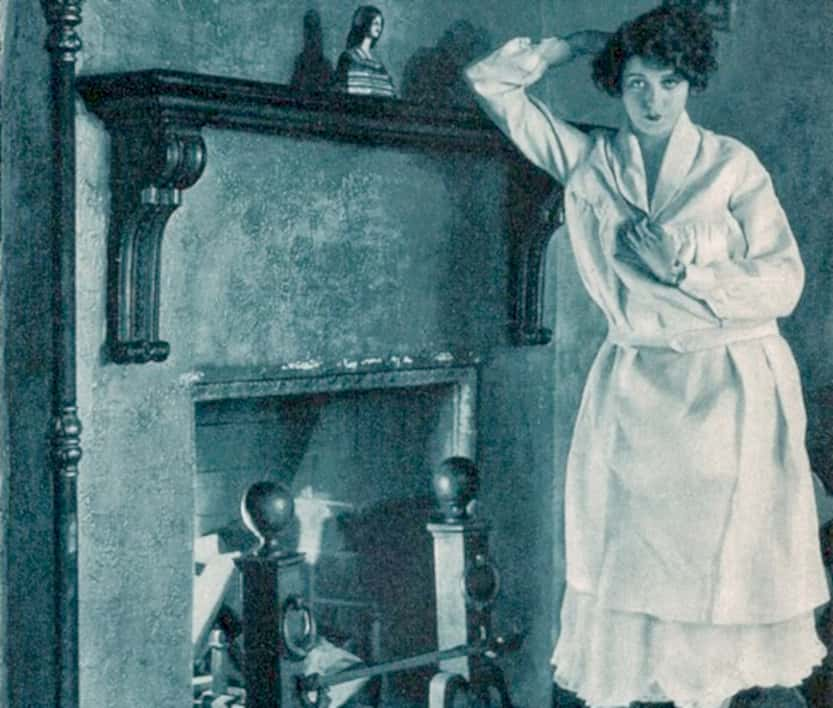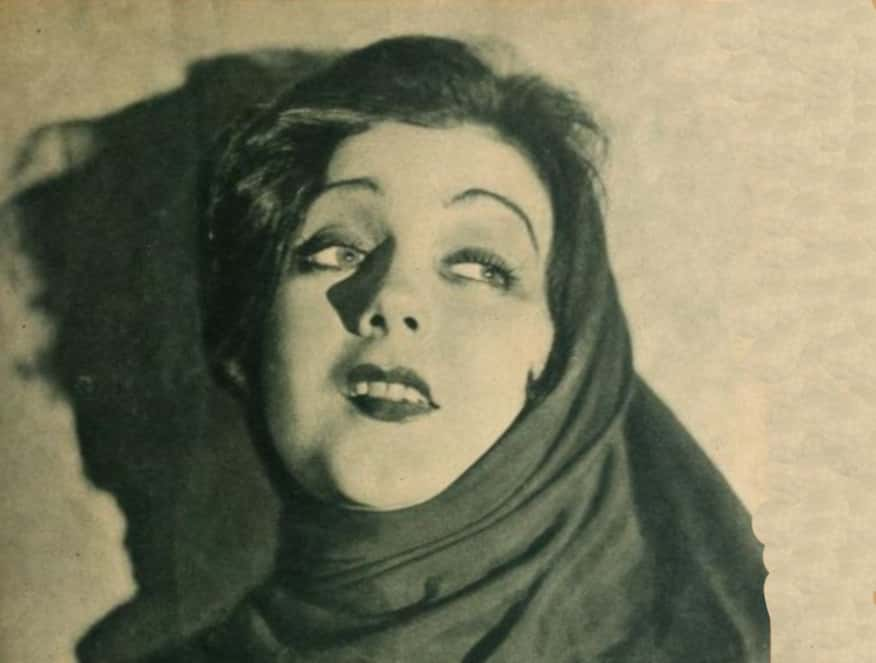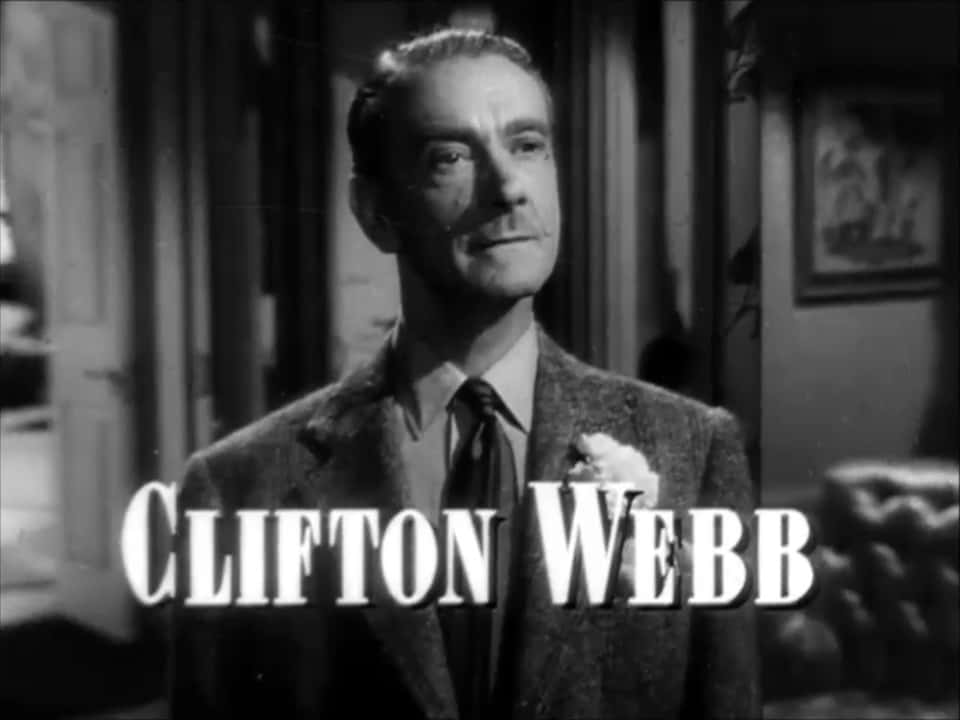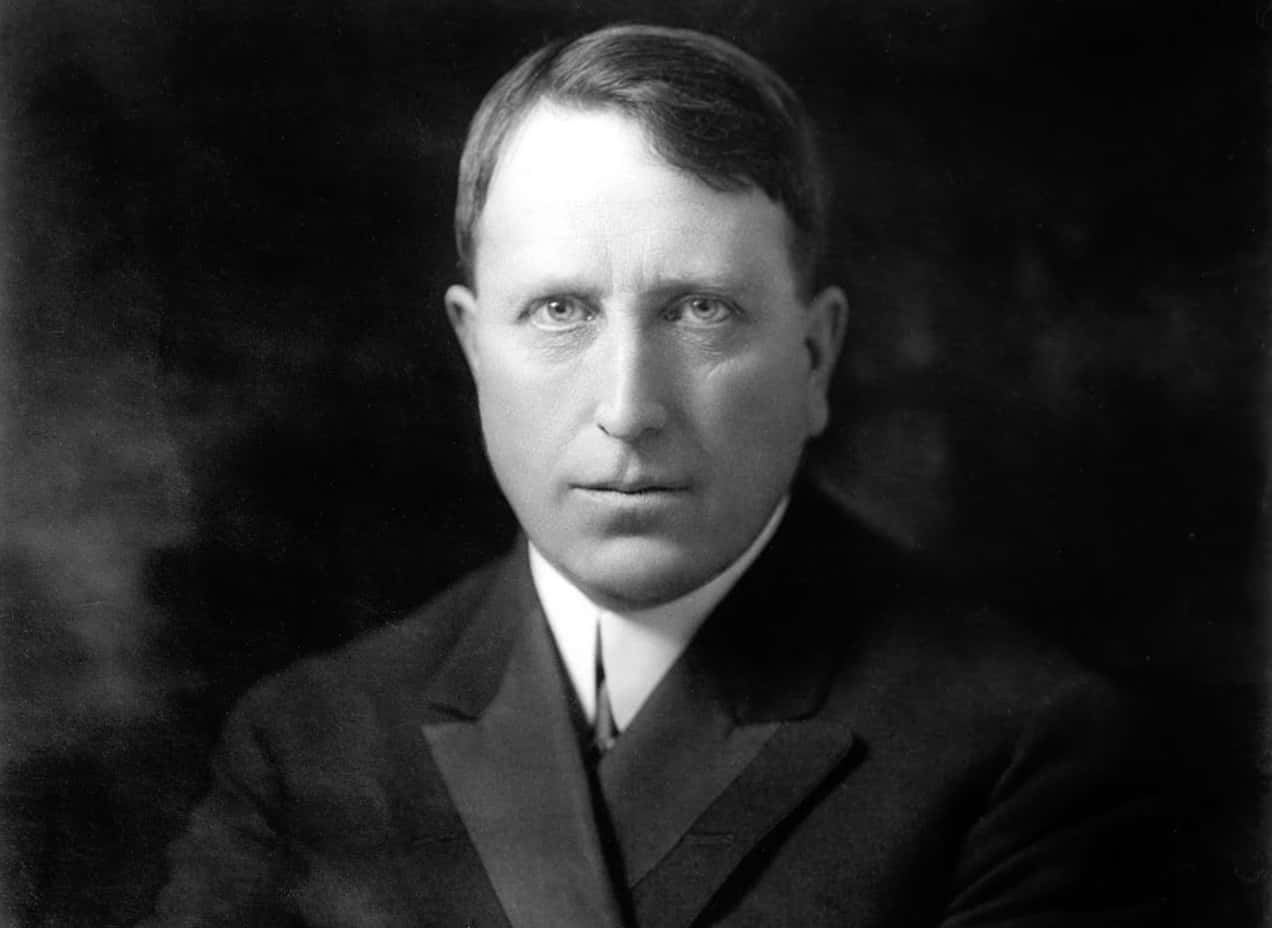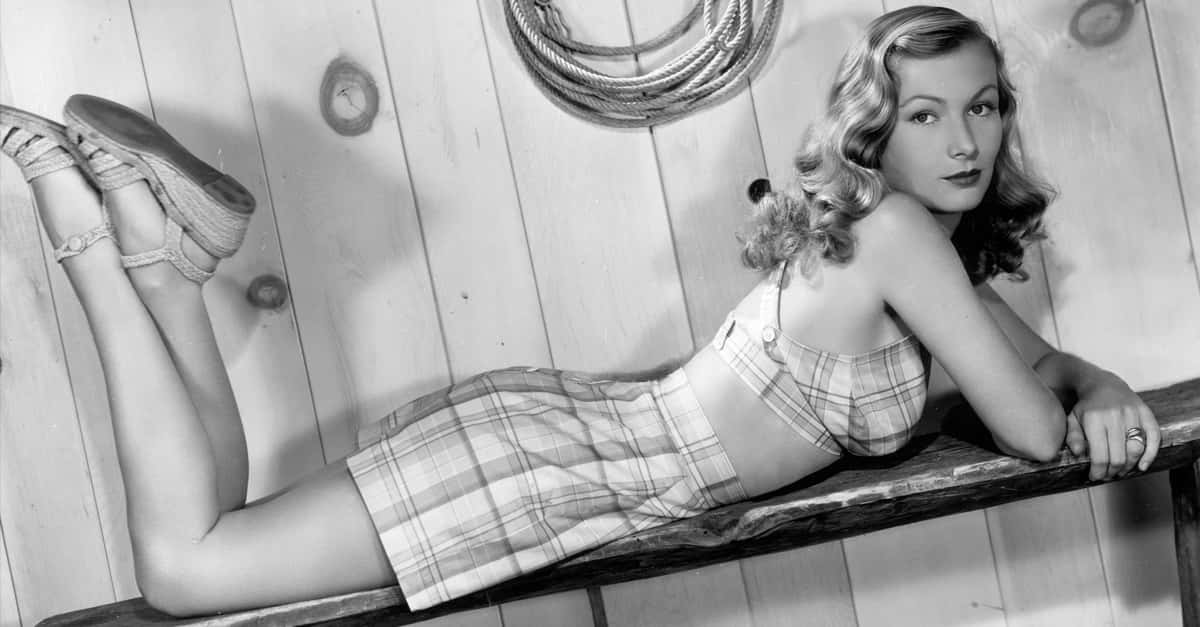Gorgeous, talented, and wife to an indeterminate number of husbands, Barbara La Marr took "femme fatale" to the next level. Combine the allure of Hollywood glamor, the boldness of an independent woman professional in the 1920s, and the drama of a sordid personal life rife with fiction and romance, and you’ve got Barbara La Marr. Her star burned bright and it burned fast. Though she spent barely 30 years in the world, this femme fatale more than made her mark.
1. Too Pretty For This World
Beauty may be only skin deep, but sometimes that’s as deep as people care to go. Among her many changing monikers (more on that below), La Marr was christened, "The Girl Who Is Too Beautiful" by the media. Almost a compliment?
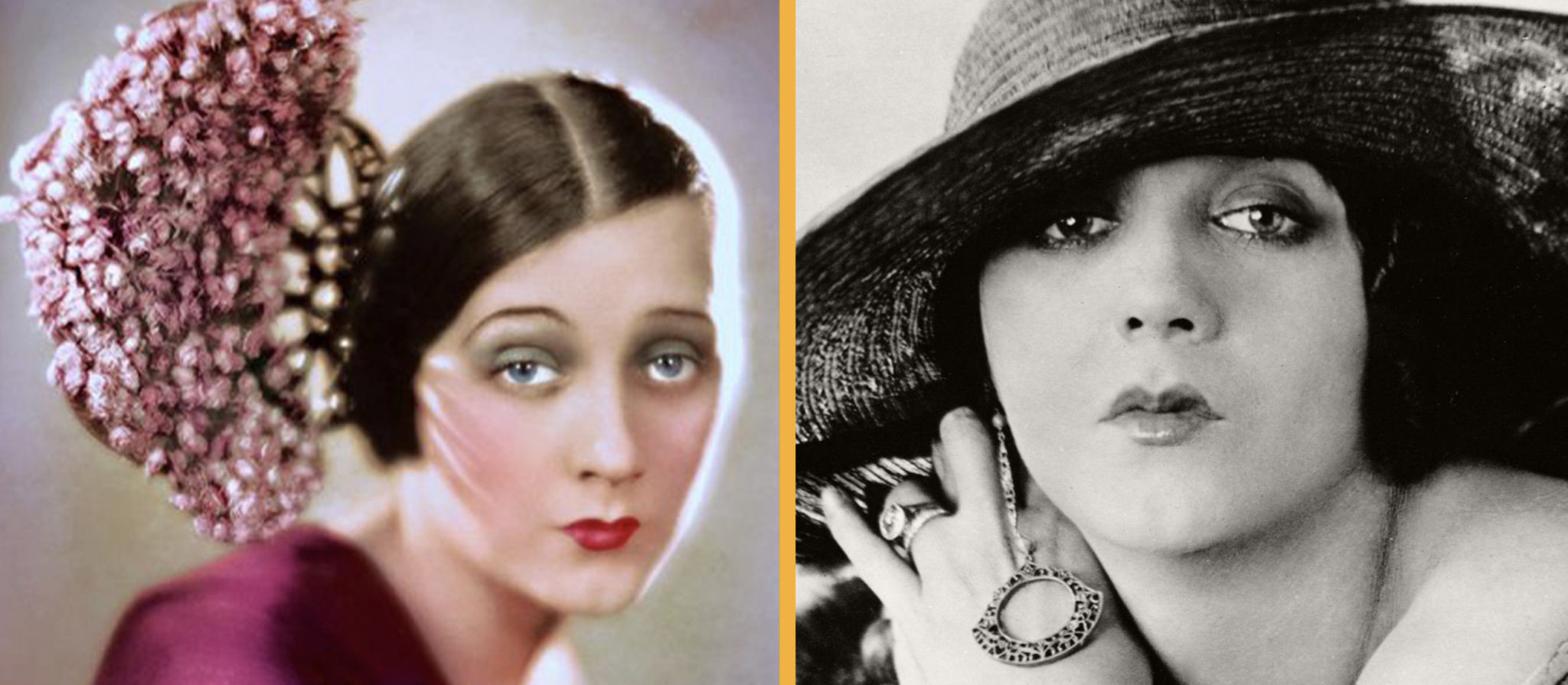
2. Here Or There?
La Marr was born in 1896; that much is certain. What remains hazy is where that birth took place. Despite records stating La Marr was born in Washington, she claimed to have been born in Richmond, Virginia. On its own, this discrepancy doesn't mean much, but as it turns out, this is just one strand in an elaborate web of glamour and lies that La Marr wove about herself.
3. Creative Input
As a multitalented beauty, it makes sense that Barbara La Marr wasn't content to just be the star of a film. When it came to La Marr's very first starring role, in a dark drama about a woman struggling with split-personality disorder entitled Sandra, she also served as a co-writer. Unfortunately, La Marr's high-involvement may have been a setback. The film’s reviews were just awful.
4. Sleep When You’re Dead
As La Marr's film career rose, La Marr was thrown into Hollywood night life. The already-wild actress adjusted to this change of pace with enthusiasm. She once claimed never to sleep more than two hours a night because she had "better things to do".
5. What Shall I Call You?
Speaking of lies… La Marr swapped out her first and last names like hats. Before becoming the iconic "Barbara La Marr" she was born as the distinctly less glamorous Reatha Dale Watson.
6. Sleeping Beauty
La Marr’s party life and sleep deprivation finally caught up to her. While filming The Girl from Montmartre, disaster struck. One day on set, La Marr suddenly collapsed and even fell into a coma – but that didn’t stop production. The studio used a body double in long shots to complete the film. No one’s irreplaceable in show business; not even the girl who’s too beautiful.
7. A Simple Man
La Marr probably did not get her notoriously eccentric, hard-partying nature from her father. Her dad, William Watson, was the hardworking editor of a newspaper. Snooze!
8. Mama Rose
Does drama run in the family? If so, La Marr's mother Rosana Watson planted the theatrical gene in her baby girl. While most women in the 1880s lived prim and proper lives, Rose's scandalous personality couldn't be repressed. When Rose married William Watson, she already had, gasp, two children from a previous marriage.
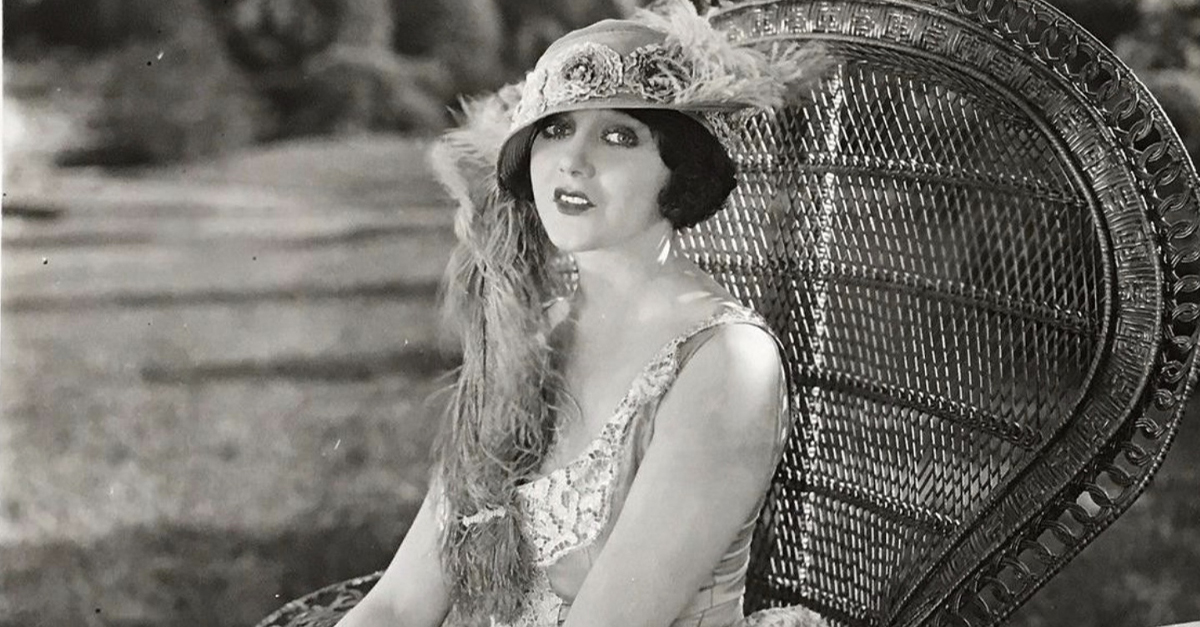 IMDB
IMDB
9. Grease Paint in Her Veins
La Marr got her start in the spotlight when her family moved to Los Angeles in 1911. As though this wasn't significant enough, this was also the year that La Marr rebranded for the first time. At home, she was just little Reatha Watson, but in the bright lights of the Vaudeville stage, she became the charming comedian Billy Devore.

History's most fascinating stories and darkest secrets, delivered to your inbox daily.
10. Men Suck
La Marr was a dazzling beauty who could entrance a man in mere minutes. Unfortunately for her, La Marr tended to attract... less than stellar options. After four or five failed attempts at wedlock (more on that later), La Marr was officially tired of romance. She was quoted as saying, "I am sick of men. The admiration of men. The so-called love of men". Honestly, me too, sis.
11. Woman of Many Talents
In addition to being a successful comedian, La Marr (Watson? Devore? You decide) also worked as a child actor and as a dancer (child labor laws, er, weren't what they are today). The little girl made her theatrical debut in a production of Uncle Tom’s Cabin in 1904. At the time, the tiny triple threat was just eight years old.
12. Close Quarters
While moving between various locations in Washington and Oregon during La Marr’s childhood, the one constant in little Barbara's life was her hodge-podge family. La Marr grew up mainly in the company of her brother, William, and half-sister, Violet. Violet introduced a new member to the family around 1900 in the form of her husband, Arvel Ross.
13. Stars! They're Just Like Us
After the family moved to Los Angeles, La Marr made her mark on the stage, strutting her stuff in burlesque shows and other Vaudevillian performances. But even though there's no business like show business, even actors have to pay the bills. When she wasn't busy wowing the crowds, La Marr made a living by working in a department store.
14. Road Trip!
La Marr and her half-sister, Violet, were very close. The duo would constantly pal around and go out on the town for adventures. But things took a disturbing turn on one fateful day. When La Marr was 16 years old, she and Violet took a three-day drive with a man named C.C. Boxley. They got all the way to Santa Barbara when La Marr realized the terrible truth. Boxley had no intention of taking them back home ever again.
15. Found by Officers and the Lime Light
The press gobbled up the story of the two young women who were kidnapped by the sinister C. C. Boxley. Luckily, the authorities issued a warrant for Boxley's arrest, with their quick actions leading the girls to be saved from captivity. A strategic showgirl from the start, La Marr wasted no time in crafting fantastical details about herself to extend the media attention. The 16-year-old claimed she was adopted and even that she was a widow.
16. Sisterly Spat
Boxley wasn’t the only one wanted by authorities – the courts also issued a warrant for the arrest of a shocking suspect: La Marr’s own sister Violet! But that's not even the worst part. La Marr even testified against her sis. Though the case was eventually dropped, La Marr’s name continued to appear in sensational headlines over the next several years.
17. A Man From a Far-Off Land
In 1914, La Marr returned to California with a brand new story. At just 18 years old, La Marr claimed she had just suffered immense heart ache. Apparently, a whirlwind romance and secret marriage with a Mexico-based rancher name Jack Lytelle had ended in utter tragedy. Lytelle passed on, leaving young La Marr a widow. These extravagant claims were… difficult to substantiate.
18. Romance of the Mind
As La Marr’s story goes, Jack Lytelle fell for her head over heels when La Marr passed him in an automobile while he was riding on horseback. Their love was so instantaneous they married the next day, but the marriage ended as suddenly as it began when the enigmatic Lytelle succumbed to pneumonia three weeks later. There are exactly zero documents to support this story, but it’s a great start to La Marr’s career as a screenwriter!
19. What’s In a Name?
It was around this time La Marr made another of her many name changes. She decided that she loathed the name Reatha and wanted instead to be referred to by her childhood nickname, Beth. It’s the author’s opinion that this choice was misguided.
20. Handy With a Pen
Sure, the screen was her main gig, but La Marr was very much a Renaissance woman, with many creative endeavors that prove you can unite beauty and brains. La Marr aspired to be a poet, and in the world of Tinsel Town Hollywood, that meant writing screenplays for a studio. In La Marr's case, she took her pen to Fox, where she crafted wild stories for the silver screen.
21. Pen Name
It was during her writing stint that La Marr found yet another name. As a writer, Barbara La Marr née Reatha adopted Folly Lyell as her professional name.
22. The Best Stories are Based in Truth
La Marr’s (Lyell’s? Watson’s?) work with Fox included several studio shorts that were, evidently, based on her own dramatic life. Now, by this point it should be clear that La Marr had only a cordial acquaintance with the truth, but whatever she was writing about paid off. She earned $10,000 during her times at Fox and later on, United Artists studios.
23. Okay, Last Time
When La Marr started writing movies, she finally settled on the name that would define her: Barbara La Marr. She was credited by this name on screenplays for The Mother of His Children, The Rose of Nome, Flame of Youth, The Little Grey Mouse, and The Land of Jazz. She was a prolific lady, constantly rewriting not just her own name but scripts as well.
24. Traveling Troubadour
La Marr wrote short screenplays while hopping from one city to the next across the US. The up-and-coming artist moved to New York City, Chicago, New Orleans, and San Francisco, living by the pen and by the stage. When La Marr wasn't writing, she was making some extra cash through dancing. Thank goodness for the valuable skills of all that child labor.
25. In the Arms of Valentino
It takes two to tango, and one of La Marr’s partners was a major catch: Rudolph Valentino himself. Yup, La Marr was lucky enough to dance with the man whose name is synonymous with the "Latin lover" trope. Valentino was a pop icon and a major symbol of seduction. When he passed on at just 31 years old, his passing caused mass hysteria.
26. Pretty People Needn’t Write
It was actress-turned-studio-exec Mary Pickford who spoke the words that would change La Marr's life. The screen legend said, "My dear, you are too beautiful to be behind a camera. Your vibrant magnetism should be shared by film audiences". La Marr’s stellar film career indicates she took Pickford's advice to heart. She slowed down on her screenwriting and sped up with her acting and performing.
27. Shifting Gears, Changing Careers
After dancing and writing her way around the country, La Marr eventually made her way back to Los Angeles. She then pivoted her aspirations, switching her career-track from writing to performing. With her vampy good looks and charismatic personality, La Marr quickly made a splash playing supporting roles in Harriet and the Piper and The Nut (the latter of which found her in her trademark role as a femme fatale.)
28. Beauty at a Brawl
La Marr’s famous title as "The Girl Who Is Too Beautiful" likely stemmed from a notorious newspaper article. In the piece, writer Adela Rogers St. Johns spotted La Marr getting sent home by a judge during a police beat. This sight led St. Johns to write that La Marr was "too beautiful and young to be on her own in the big city". Evidently, La Marr disagreed.
29. Partying Problem
La Marr’s penchant for having a good time got out of hand fast. By the time she was filming Thy Name Is Woman, the production supervisor had to make regular visits to the set, just to make sure that La Marr’s notoriously heavy drinking wasn’t interfering with filming. In other words, a fully grown woman had a baby sitter.
30. Most Husbands Accounted For
Although the existence of her alleged first husband, Jack Lytelle, is questionable at best, La Marr walked down the aisle with four other men who absolutely did exist, making that the official tally of her marriages.
31. The Real Deal?
La Marr’s first husband shared her proclivity for changing names. Marrying her as Max Lawrence, it later turned out he was actually an ex-soldier name Lawrence Converse. Unfortunately for La Marr, that was just the beginning of this web of deception. It turned out that Lawrence Converse already had a wife and children. He was arrested for bigamy the day after their marriage. He suffered a fatal blood clot just three days later.
32. Guess She Liked Bad Boys
La Marr likely thought she’d have better luck in the romance department when she married dancer Philip Ainsworth. With their shared backgrounds and Ainsworth's dashing good looks, what could go wrong? A lot, apparently. The good news is he didn’t immediately kick the bucket. The bad news is he was still arrested, not for bigamy but for passing bad checks. At least he didn’t have a secret second family?
33. Third Time, No Charm
La Marr’s third marriage (also to a dancer, a man named Ben Deely) ended for slightly normal reasons. He was twice her age, an alcoholic, and a gambling addict. You know you need to rethink your type when this guy sets the standard for a good husband. Of course, the marriage between La Marr and Deely inevitably ended in divorce. But hey, no arrests or deaths!
34. No Time to Waste
Before her divorce from Deely was even finalized, La Marr had already found her next husband. She and Jack Daugherty were married until the end of La Marr’s days… technically. They did separate a year after marriage, but the divorce was never finalized.
35. Secret Baby??
La Marr did, indeed, have a child! Her son, Marvin Carville, was born on July 29, 1922, but his arrival wasn't exactly public knowledge. In a scandalous twist, especially for the 1920s, little Marvin's father’s identity was never publicly revealed. But that's not even the juiciest part. His identity as La Marr’s son only came to light after she passed on.
36. Left In Good Hands
Barbara La Marr was a pretty wild young lady, but through it all, she had a good heart. Before she departed this world, La Marr made sure to protect her son in the event of her passing. As she battled her final illness, La Marr entrusted the care of her son to actress ZaSu Pitts and her husband, film executive Tom Gallery. The couple legally adopted the boy and changed his name to Don Gallery.
37. Beauty is Pain
Sleep deprivation, over-drinking, and exhaustion played an obvious role in La Marr's steady health decline- but her extreme weight loss tactics may have contributed as well. In the last two years of her life, La Marr was plagued with insecurities about her already-thin frame. She went on several crash diets and was even rumored to have swallowed a tapeworm.
38. Careful What You Wish For
During La Marr’s final battle with the tuberculosis, La Marr lost alarming amounts of weight. When the terrible illness finally ended her life, doctors discovered that La Marr weighed less than 80 pounds when she met her end.
39. The Best Funeral You’ll Ever See
La Marr’s funeral mimicked the way she lived with its grandeur and drama. In a crowd of 3,000 fans, no less than five women reportedly fainted. After La Marr’s body was removed from the church, people swarmed the chapel trying to get their hands on the floral arrangements. The entire thing was a mess, and La Marr probably wouldn't have had it any other way.
40. A More Decorous In Memoriam
Though the funeral was carnage, Barbara La Marr received a classier token of respect in the form of a star on the Hollywood Walk of Fame. (Though with her love of drama, who’s to say which she would have preferred).
41. The Dance Continues
Another of La Marr’s dance partners was Clifton Webb, a triple threat who was nominated for an Oscar three times over. He also performed on Broadway, so perhaps he and La Marr bonded over their mutual multi-talents.
42. Dancer Discovered
Barbara La Marr’s dancing led to one of the most important professional connections of her life: William Randolph Hearst. President of Hearst Communications, the country’s largest media company, he was known for sensationalizing his stories – a strategy that worked very well for La Marr. With a series of dramatic articles, Hearst turned the little-known La Marr into a major star.


